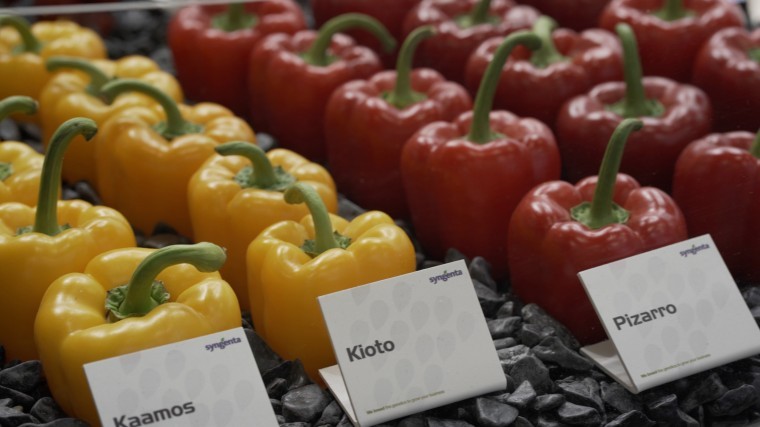Changing retail trends across Europe will create whole new requirements for innovative vegetable varieties selected and bred to meet evolving demands of consumers, and enable growers to supply them at a competitive price.
Syngenta head EAME vegetable seeds, Arend Schot, speaking after a successful Fruit Logistica 2019, in Berlin earlier this month, reported great interest in new varieties tailored to enhancing consistency and efficiency throughout the value chain.
“Attracting more than 78,000 trade visitors, from 130 countries, Fruit Logistica provided us a perfect platform to talk to customers across the value chain,” said Arend. “Understanding their demands enables our breeders to select and focus genetics on variety traits that will best meet their needs now, and in the future.”
Arend cited the example of the well-received, deep aubergine purple Yoom® tomato that is ideally suited to modern consumers’ healthy lifestyle and quest for innovation in taste and food experience, but also meets the value chain demand for its reliability, consistency and capability to reach the retail point in ‘just-picked’ perfect condition.
“Many visitors were seeking solutions for the retail trend of smaller city centre stores and the rapidly growing sector of home delivery of internet orders. There is huge demand for produce varieties that can store and transport efficiently, and maintain excellent quality through repeated handling.
“For retailers operating with small stocks and pre-selected home delivery supplies, uniformity and consistent quality is paramount for customer satisfaction,” he added. “Furthermore, they’re looking for varieties particularly well suited to the continuous drive to reduce packaging and waste.”
He highlighted Syngenta innovations at Fruit Logistica such as the new Destinica cauliflower range, which offer an extremely high yield of best quality Class I produce from the field – for cost-effective and resource efficient growing – combined with exceptional quality curds and consistent size that is highly attractive to consumers.
Engaging the global audience, the other key topic was year-round continuity of produce supplies. With peppers, for example, Spain can now offer international markets 365-day supply of exceptional quality fruits, with the added selling point of more sustainable growing.
“Focused on offering solutions to consumers, supermarkets, exporters and growers, we, at Syngenta, have developed the largest and broadest offer of more than 15 pepper varieties with a high level of efficient natural resistances to pests and diseases – which make them especially suitable for today’s sustainable and organic production systems.
Over 40% of the region’s 75,000 ton organic pepper production is already fulfilled with these ‘extra resistant’ varieties from Syngenta and sister company, Zeraim Iberica.
Arend Schot believes this line of innovation places Syngenta at the forefront and as leaders in the development of resistant varieties.
“The quality of produce binds together relationships and collaborations of individuals and businesses throughout the food chain,” he said. “Assuring supplies of high quality, affordable, produce is core to the Syngenta Good Growth Plan for a sustainable food industry.
“We breed genetics to grow your business at every step of the food chain.”




